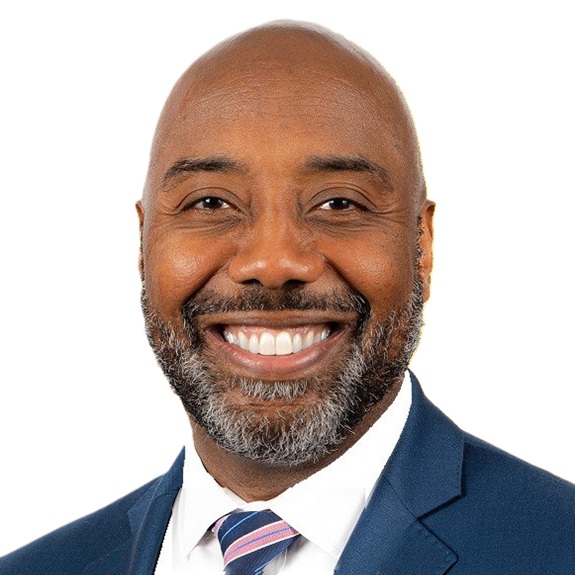How to Get Your Long-Term Care Planning on the Right Track
Many of us are not as prepared as we should be, but it’s not too late. Taking these steps today can get you started on planning for your long-term care.


Profit and prosper with the best of Kiplinger's advice on investing, taxes, retirement, personal finance and much more. Delivered daily. Enter your email in the box and click Sign Me Up.
You are now subscribed
Your newsletter sign-up was successful
Want to add more newsletters?

Delivered daily
Kiplinger Today
Profit and prosper with the best of Kiplinger's advice on investing, taxes, retirement, personal finance and much more delivered daily. Smart money moves start here.

Sent five days a week
Kiplinger A Step Ahead
Get practical help to make better financial decisions in your everyday life, from spending to savings on top deals.

Delivered daily
Kiplinger Closing Bell
Get today's biggest financial and investing headlines delivered to your inbox every day the U.S. stock market is open.

Sent twice a week
Kiplinger Adviser Intel
Financial pros across the country share best practices and fresh tactics to preserve and grow your wealth.

Delivered weekly
Kiplinger Tax Tips
Trim your federal and state tax bills with practical tax-planning and tax-cutting strategies.

Sent twice a week
Kiplinger Retirement Tips
Your twice-a-week guide to planning and enjoying a financially secure and richly rewarding retirement

Sent bimonthly.
Kiplinger Adviser Angle
Insights for advisers, wealth managers and other financial professionals.

Sent twice a week
Kiplinger Investing Weekly
Your twice-a-week roundup of promising stocks, funds, companies and industries you should consider, ones you should avoid, and why.

Sent weekly for six weeks
Kiplinger Invest for Retirement
Your step-by-step six-part series on how to invest for retirement, from devising a successful strategy to exactly which investments to choose.
It may not be especially nice to think about, but the fact is that as we all keep living longer, our likelihood of requiring long-term care is increasing, too. What that care looks like and how long we need it for are, of course, unique to every individual. But what’s true for many of us is that, financially speaking at least, we’re not as prepared as we could be.
A recent survey by LIMRA revealed that although 29% of respondents believed they owned some form of long-term care insurance coverage, the true figure was closer to 3%. A OneAmerica study also found that while 29% of consumers researched long-term care plans, only 16% went on to actually implement one.
So, if you haven’t yet started your own financial preparations for long-term care, you’re certainly not alone. And the good news is it’s not too late either. Here are five steps you can take today to get your long-term care planning on track.
From just $107.88 $24.99 for Kiplinger Personal Finance
Become a smarter, better informed investor. Subscribe from just $107.88 $24.99, plus get up to 4 Special Issues

Sign up for Kiplinger’s Free Newsletters
Profit and prosper with the best of expert advice on investing, taxes, retirement, personal finance and more - straight to your e-mail.
Profit and prosper with the best of expert advice - straight to your e-mail.
1. Check out the National Association of Insurance Commissioners’ (NAIC) Shoppers Guide for Long-Term Care Insurance.
It’s free to download in both English and Spanish and completely product- and company-agnostic. It therefore offers you an unbiased frame of reference to use when thinking about long-term care coverage.
2. Communicate your plans with your loved ones.
Whether it’s a family member, relative or close friend, be sure to discuss your plans for long-term care with the people closest to you. In particular, think about the role everyone can have — one that makes them feel involved but also plays to their strengths.
For example, maybe your spouse will oversee actually paying your care bills, but one of your kids or a close friend is going to visit you every day for a coffee and a chat.
Be sure to regularly check that you have the right people named as beneficiaries and/or with access rights for your insurance contracts, too.
3. Figure out if you can self-fund.
As an American citizen, you’re entitled to long-term care that is paid for by the government. However, as you might expect, the standard of care in a public Medicaid facility can be quite different to what you may receive if you pay to go private.
Review your finances and, if you’re in a position to self-fund, start actively preparing to do so now.
4. Find the right saving option for you.
If you’re going to self-fund, there are a few different ways to go about it.
- Standalone long-term care insurance. The premiums for these plans tend to be cheaper than for hybrid ones (more on those in a moment). However, they can be used only to fund long-term care, so if you don’t end up needing it, the money is essentially lost. (Some standalone products allow spouses to be covered by the same contract, increasing the chances that one of you will use it.) The reimbursement rules can also be challenging from a liquidity perspective, as they require you to pay for the care yourself, then submit receipts to recover the cost.
- A life insurance contract that contains a long-term care rider. These cover both your life insurance and long-term care benefit in a single plan. Consequently, the premiums are more expensive than a standalone product, but the upside is that if you don’t end up using the money for long-term care, it’s simply passed on to your stated beneficiaries when you die. If the rider is used, it is paid out as an acceleration of the death benefit until either the benefit amount is exhausted or upon your death.
- Create your own “long-term care bucket.” Rather than paying for insurance coverage, you could use some other investment program or annuity contract to save for long-term care. Over time, such funds can grow considerably without any restrictions on how you use the money. However, you’ll need enough liquidity (and discipline!) to ensure you pay into the fund regularly for a number of years. Plus, unlike with most standalone or hybrid insurance policies, any funds you accrue won’t be covered by state level asset protection programs, known as partnership policies.
5. Consult a professional.
Selecting the right insurance coverage or savings plan from the various options available can be a complicated process. A qualified financial professional will help you sort through the details, make the complex simple and assist you in determining the approach that works for you. They can also help you integrate long-term care preparations into your overall financial plan.
Whatever the right long-term care plan for you, the most important thing is to have one. The sooner the better, too, because the earlier you start saving, the bigger your pot will be if and when the time comes.
Sadly, none of us can escape getting older. But by taking these steps today, you can ensure that both you and your budget are as prepared for tomorrow as possible.
This article has been obtained from an outside source and is provided as a courtesy by Stephen B. Dunbar III, JD, CLU, Executive Vice President of the Georgia Alabama Gulf Coast Branch, Equitable Advisors and Equitable Network do not legal or tax advice and make no representation as to the accuracy or completeness of this information. You should consult your own legal and tax advisors regarding your particular circumstances.
Stephen Dunbar offers securities through Equitable Advisors, LLC (NY, NY 212-314-4600), member FINRA, SIPC (Equitable Financial Advisors in MI & TN). Annuity and insurance products offered through Equitable Network, LLC. Equitable Network conducts business in CA as Equitable Network Insurance Agency of California, LLC, in UT as Equitable Network Insurance Agency of Utah, LLC, in PR as Equitable Network of Puerto Rico, Inc. AGE- 5489036.1(3/23)(Exp.3/25)
Profit and prosper with the best of Kiplinger's advice on investing, taxes, retirement, personal finance and much more. Delivered daily. Enter your email in the box and click Sign Me Up.

Stephen Dunbar, Executive Vice President of Equitable Advisors’ Georgia, Alabama, Gulf Coast Branch, has built a thriving financial services practice where he empowers others to make informed financial decisions and take charge of their future. Dunbar oversees a territory that includes Georgia, Alabama and Florida. He is also committed to the growth and success of more than 70 financial advisers. He is passionate about helping people align their finances with their values, improve financial decision-making and decrease financial stress to build the legacy they want for future generations.
-
 You Received a Life Insurance Payout. Here's How to Avoid an IRS Audit.
You Received a Life Insurance Payout. Here's How to Avoid an IRS Audit.You received a big check from your loved one's life insurance policy. Will the IRS be expecting a check from you now?
-
 Supreme Court Strikes Down Trump Tariffs: What's Next for Consumers and Retailers?
Supreme Court Strikes Down Trump Tariffs: What's Next for Consumers and Retailers?Tax Law This landmark decision will reshape U.S. trade policy and could define the outer boundaries of presidential economic power for years to come.
-
 Before You Go to Costco, Try This Grocery Strategy First
Before You Go to Costco, Try This Grocery Strategy FirstA simple shift in how you plan meals could help you spend and waste less.
-
 I'm a Financial Planner: This Is How You Can Legally Divorce the IRS for the Rest of Your Life
I'm a Financial Planner: This Is How You Can Legally Divorce the IRS for the Rest of Your LifeWith some careful planning focused on the standard deduction, retirees who have large sums in tax-deferred accounts can avoid unpleasant tax bills and even part ways with the IRS for good.
-
 9 Ways the Wealthy Waste Thousands in Taxes: A Checklist for What Not to Miss
9 Ways the Wealthy Waste Thousands in Taxes: A Checklist for What Not to MissThe tax code contains plenty of legitimate ways for the wealthy and business owners to cut taxes. Use this checklist to minimize taxes and stay compliant.
-
 When Estate Plans Don't Include Tax Plans, All Bets Are Off: 2 Financial Advisers Explain Why
When Estate Plans Don't Include Tax Plans, All Bets Are Off: 2 Financial Advisers Explain WhyEstate plans aren't as effective as they can be if tax plans are considered separately. Here's what you stand to gain when the two strategies are aligned.
-
 Counting on Real Estate to Fund Your Retirement? Avoid These 3 Costly Mistakes
Counting on Real Estate to Fund Your Retirement? Avoid These 3 Costly MistakesThe keys to successful real estate planning for retirees: Stop thinking of property income as a reliable paycheck, start planning for tax consequences and structure your assets early to maintain flexibility.
-
 I'm a Financial Planner: These Small Money Habits Stick (and Now Is the Perfect Time to Adopt Them)
I'm a Financial Planner: These Small Money Habits Stick (and Now Is the Perfect Time to Adopt Them)February gets a bad rap for being the month when resolutions fade — in fact, it's the perfect time to reset and focus on small changes that actually pay off.
-
 Social Security Break-Even Math Is Helpful, But Don't Let It Dictate When You'll File
Social Security Break-Even Math Is Helpful, But Don't Let It Dictate When You'll FileYour Social Security break-even age tells you how long you'd need to live for delaying to pay off, but shouldn't be the sole basis for deciding when to claim.
-
 I'm an Opportunity Zone Pro: This Is How to Deliver Roth-Like Tax-Free Growth (Without Contribution Limits)
I'm an Opportunity Zone Pro: This Is How to Deliver Roth-Like Tax-Free Growth (Without Contribution Limits)Investors who combine Roth IRAs, the gold standard of tax-free savings, with qualified opportunity funds could enjoy decades of tax-free growth.
-
 One of the Most Powerful Wealth-Building Moves a Woman Can Make: A Midcareer Pivot
One of the Most Powerful Wealth-Building Moves a Woman Can Make: A Midcareer PivotIf it feels like you can't sustain what you're doing for the next 20 years, it's time for an honest look at what's draining you and what energizes you.